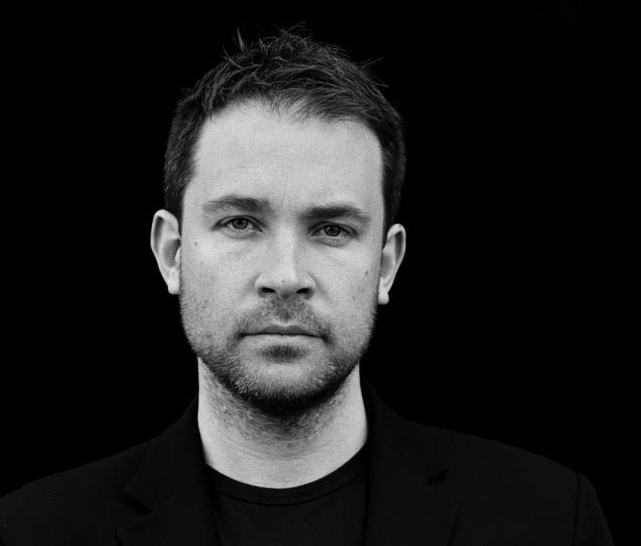TREVOR BAČA
WRITER-IN-RESIDENCE
|
BIO
American composer Trevor Bača (*1975) was born in California and grew up in Texas. His concerns as a composer include lost and secret texts; sorcery, divination and magic; the beauty and movement of light; and the powers of musical storytelling. Bača's music has been played throughout the world with recent performances in Barcelona, Berlin, Boston, Cincinnati, Cologne, Curitiba, Darmstadt, Helsinki, Huddersfield, Leuven, Ljubljana, Los Angeles, Lyon, Maastricht, New York, San Diego, San Francisco, Thessaloniki, Tokyo, Trieste, Würzburg and elsewhere.
Bača's music has been played by soloists and ensembles around the world. Ensembles include the Argento Ensemble (New York); Callithumpian Consort (Boston); the Debussy Trio (Los Angeles); Distractfold (Manchester); Either/Or (New York); Ensemble Dal Niente (Chicago); Ensemble Echoi (San Diego); Ensemble Mosaik (Berlin); ensemble recherche (Freiburg); Ensemble SurPlus (Freiburg); manufaktur für aktuelle musik (Cologne); Talea Ensemble (New York); and others. Soloists include Brian Archinal (Bern); Séverine Ballon (Paris); Nico Couck (Antwerp); Madison Greenstone (San Diego); Richard Haynes (Bern); Jonathan Hepfer (Los Angeles); Marc Horne (Barcelona); Carin Levine (Bremen); Reiko Manabe (Tokyo); Mark Menzies (Los Angeles); Corrado Rojac (Trieste); Jürgen Ruck (Würzburg); Jessi Rosinski (Boston); Alan Toda-Ambaras (Boston); Alice Teyssier (New York); Elizabeth Weisser (New York); and others. Bača's music has been programmed as part of the Darmstädter Ferienkurse (Darmstadt); Musica Sacra (Maastricht); the Transit Festival (Leuven); and the Weimarer Frühjahrstage für zeitgenössische Musik (Weimar). Prizes include Harvard University's George Arthur Knight Prize (2016); Harvard University's Sprague Prize in Composition (2015); Harvard University's Bohemians' Prize in Composition (2014); the Harry & Alice Eiler Foundation's Ježek Prize in Composition (2008); and the Debussy Trio's Susan & David Hirsch Prize in Composition (1996). Recent publications include "Abjad: an open-source system for formalized score control," published in the proceedings of First International Conference on Technologies for Music Notation and Representation, at IRCAM / Sorbonne in Paris; "Nature, song, transfiguration," a critical introduction to the instrumental music of Chaya Czernowin, published by Schott Music, in Mainz; "Music composition and the technologies of working together," an assessment of open-source technologies for collaborative composition, in the journal Ideas Sónicas, in Mexico City; "Breath, blood, network of nerves: an accidental body poetics," that theorizes the in-motion body and its parts; and "Unremitting ambiguity," an analysis of The Flypaper, by composer Steven Kazuo Takasugi, published in the journal Search and reprinted in The Second Century of New Music. Bača has lectured at the Chinese University of Hong Kong; Columbia University; the Conservatoire Nationale Supérieur de Musique et Danse in Lyon; the Eastman Conservatory; Harvard University; the Institut de Recherche et Coordination Acoustique / Musique (IRCAM) in Paris; the Massachusetts Institute of Technology (MIT); Musicasa Tokyo; the New England Conservatory (NEC); Northeastern University; Stanford University; the Stuttgart Musikhochschule; the University of California Berkeley (UC Berkeley); the University of California at Santa Barbara (UCSB); the University of California at Santa Cruz (UCSC); the University of California at San Diego (UCSD); the University of Chicago; University College Cork (UCC) in Ireland; and the University of Huddersfield in the UK. Bača is the inventor of Abjad, a Python-based open-source software system for music composition. Since 2016 Bača has led weeklong intensive summer courses about Abjad at Stanford University's CCRMA; Bača is proud to participate in Stanford's Women in Computer Music Scholarship. In August 2009 Bača completed a two-week residency at Schloss Solitude in Stuttgart with performances by Ensemble SurPlus. Bača's music has been anthologized as part of Notations 21 (edited by Theresa Sauer) and Bača's scores have been exhibited as art at the Chelsea Gallery in New York City and at the Hutchins Gallery on Long Island. Bača holds a PhD in music composition from Harvard University. In 2019 Bača joined the faculty of the Department of Music of Yale University, where he lectures on 20th- and 21st-century music. |
ARTIST'S STATEMENT
I understand my music as emotive encoding. I write because I feel an emotional compulsion to write — to give form to fantastic or impossible colors and shapes as sound and as pleasure — and, yet, when I write, I am intensely aware of the fact that I am setting up and taking apart a code. I write for different combinations of instruments in chamber and orchestral settings and the written score is an important part of how I work. The act of score preparation is, for me, an emotional effort deeply concerned with the weight and energy and physical charge of raw and vibrant sounds, and, in equal measure, a type of work that is surpassingly symbolic, intimately bound up with the networks of potential meaning set up by marks on the page. I reject any dichotomy that pits the analytic against the emotional. Symbols can, and do, cut like knives. And I work for a music that is everywhere an emotional play of symbols, complete with all the almost unworkable contradictions such a play of symbols carries.
I don't understand either the societal or psychological parts of the composer role. And I would just as soon replace it with some other type of work carrying some other type of baggage. Sorcery, perhaps. A special appeal to concentration, with concern for a secret language of symbols, a secret way of reading the events and details of the natural world. I want music to be an intensely shared and public experience. And I want the intensity of that experience to result, at least in part, from an effort of decipherment, and translation, on all our parts. My music comes back again and again to a constellation of images, and desire. The beauty of reflected and refracted light. The relationships between code and power and time. The assertion of power and importance in an everyday type of living. The delicacy of flowers and their parts. And networks of people and our relationships. I believe that there is something utterly human in rendering flashes of these ideas as symbols on the page, designed specifically for experience in some other, potentially unknown, place. |
